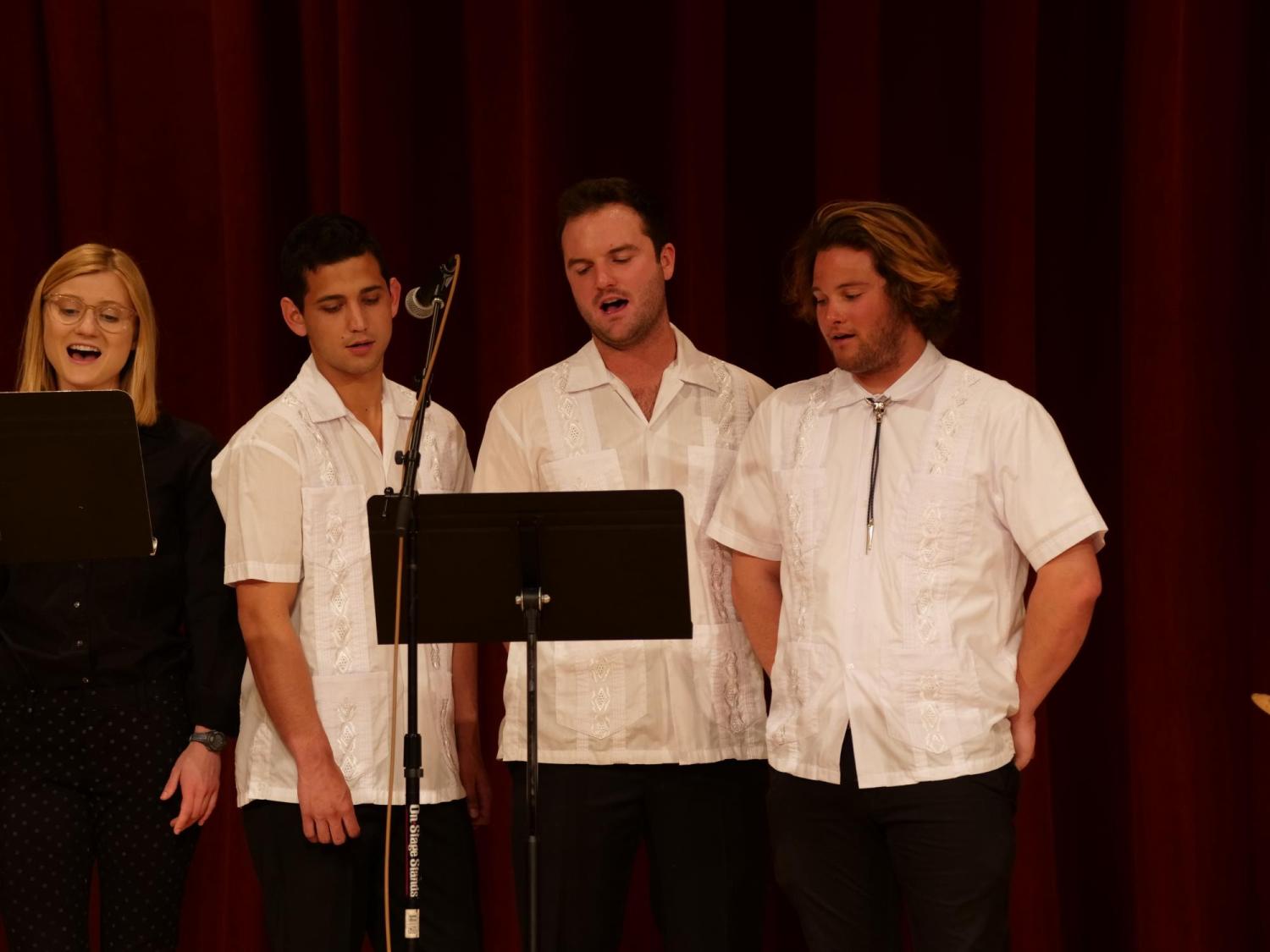
The Latin American Ensemble performs in Grusin Music Hall on Sunday, April 22, at 4:30 p.m.
Every year, the College of Music welcomes the spring thaw with a celebration of music outside the classic western canon. This April, the annual showcase of world music features a performance by the Latin American Ensemble on Sunday, April 22.
The ensemble, which changed its name this year from the Mariachi Ensemble as its repertoire continues to evolve, is made up of mostly non-music majors and performs traditional music from around the Americas, including lucumí spiritual songs with Afro-Cuban Bata drumming accompaniment.
“We will end with a little rumba that’s so catchy that everybody’s going to love it,” says Professor of Ethnomusicology Brenda Romero, who helps lead the group.
Longtime Mariachi Ensemble director Francisco “Chino” Rodríguez now co-directs the Latin American Ensemble with Romero, guest bandleader Alonzo Bejarano and teaching assistant Zane Cupec, who are helping to change instrumentation resources to include more Afrolatino sounds.
“We started as the Latin American Ensemble years ago,” Romero recalls, “but then we started playing more and more mariachi so we changed the name. But it’s difficult to do mariachi because you need very particular instruments.”
A major goal of the Latin American Ensemble, Romero explains, is that the music be accessible for all listeners and playable for musicians of all levels. The musical traditions of Central and South America were passed down through communal performance, and the ensemble will continue that.
“The point of the world music ensembles is to get students to experience making music that is more welcoming to people who aren’t trained. Everybody should have the opportunity to make music, no matter what level of musician they are.”
On the program is an array of pieces celebrating the Afrolatino musical connection in Latin America and the Caribbean, including a fast-paced joropo from Venezuela, ballads featuring student soloists, and two pieces with guests the Román Díaz Afro-Cuban Ensemble. Romero will also perform with junior soprano Julieta García on the piece García sang with Mexican artist Lila Downs during her March 3 Artist Series concert.
The broad range of cultures represented on the program is symbolic of the role the Latin American Ensemble can play in expanding students’ and concertgoers’ definition of what music means.
“Music making itself is critical in today’s society. Music is one of the only things that calms people down,” Romero says. “Musicians and music making have a huge role to play in making things better.”
The Latin American Ensemble takes the Grusin Music Hall stage at 4:30 p.m. on Sunday, April 22. Their appearance will be followed by a bonus performance after the concert with the Román Díaz Afro-Cuban Ensemble. That concert begins at 7:30 p.m. in the Old Main Chapel, with a reception following at 9 p.m. at Koenig Alumni Center. If you really want to get your world music fix, come early for the Japanese Ensemble concert at 2 p.m. in Grusin Hall. Find more information at cupresents.org.




